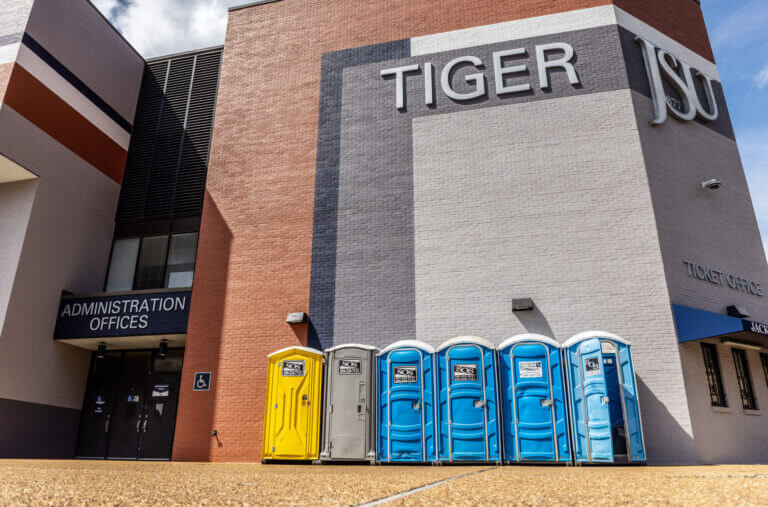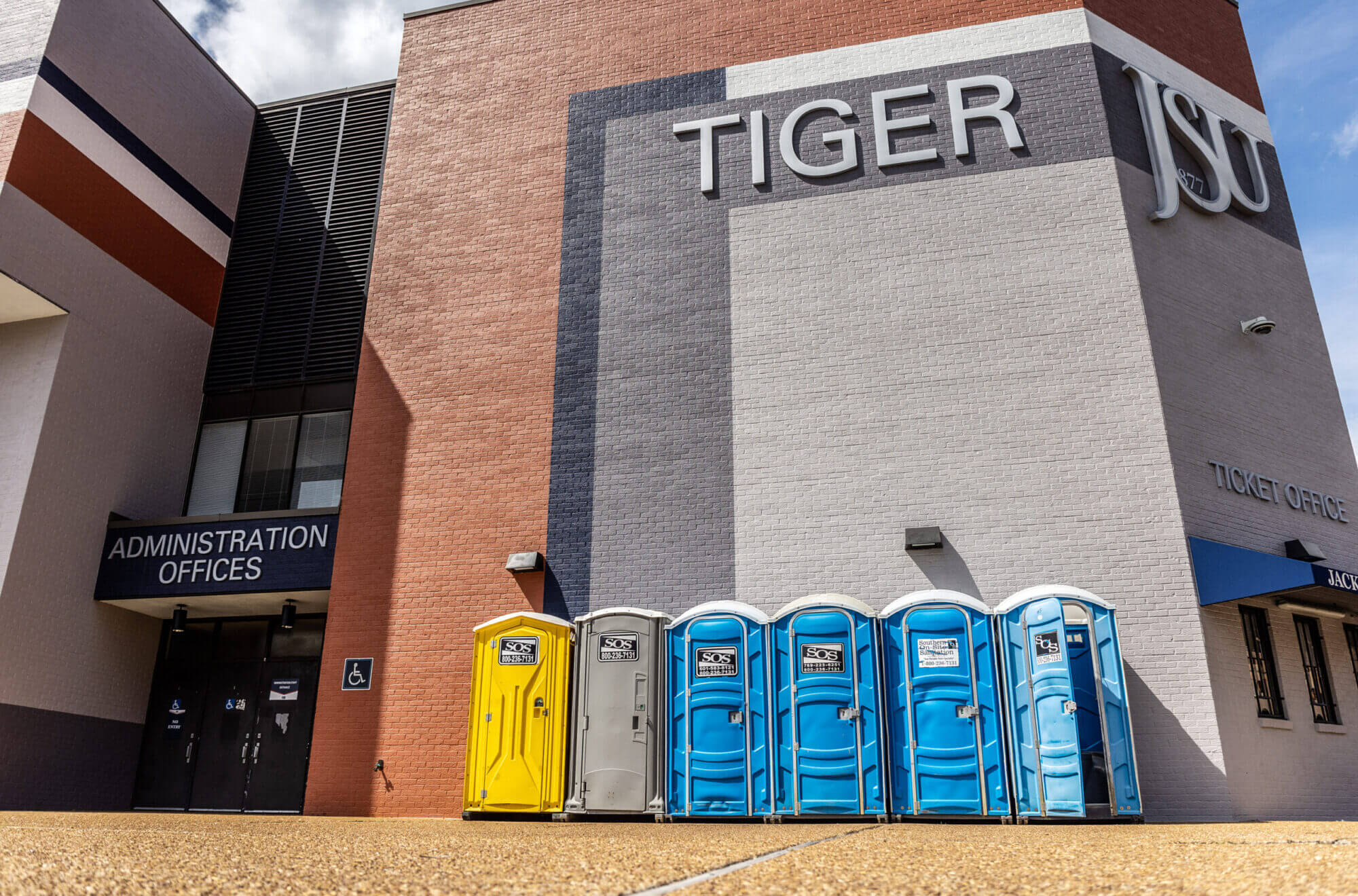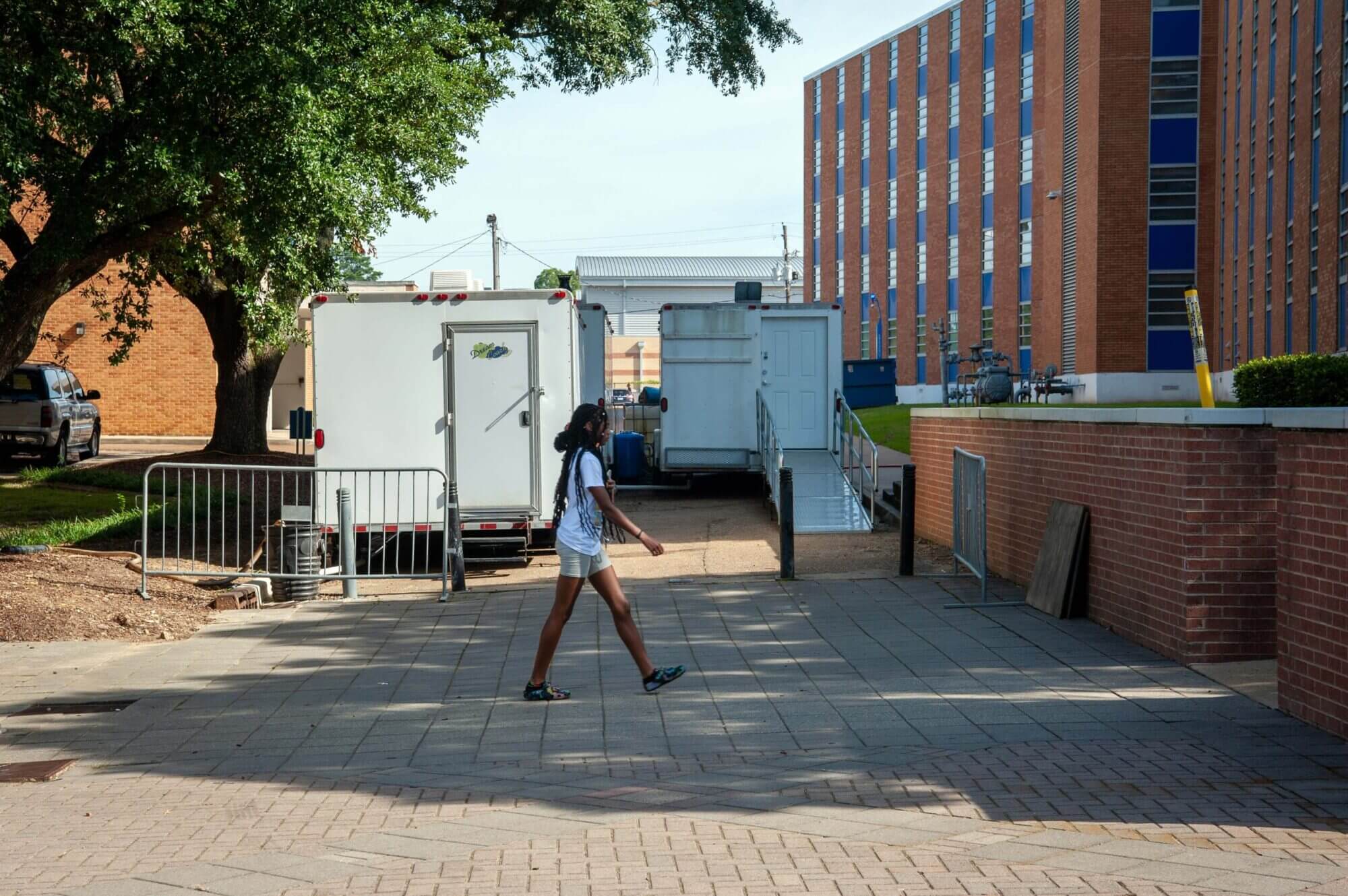

In the latest twist in Jackson State University’s quest to insulate itself from the city’s water woes, testimony before U.S. District Judge Henry Wingate revealed that a years-in-the-works, nearly complete plan to install backup water tanks on campus could put students at risk of consuming water not intended for drinking.
But the historically Black university, which has not been involved in the city’s ongoing lawsuit until now, was not forced to court over the issue. Instead, the university was the one that filed a grievance. It sought Wingate out for help with what it described as an insurmountable roadblock: Ted Henifin, the federal water receiver, who was refusing to permit the project to move forward.
“It has an enrollment effect on us, a morale effect on us, and most important, an operational effect on us,” Vance Siggers, the director of campus operations, told Wingate, adding that each time the university experiences days without water, it loses “somewhere between 50 and 100 students just on the basis of we don’t have water on campus.”

The two sides mostly talked past each other during the Thursday proceedings, with Jackson State contending that it was not attempting to build its own water system for human consumption. The university has been working on this project since the 2022 water crisis disrupted the fall semester for weeks.
Henifin, backed by testimony from the Mississippi State Department of Health, responded that the university’s plan for the backup tanks did not follow safety regulations. That’s in part because, during emergencies, health officials said the plan would route nonpotable water through the same pipes the university normally uses to deliver potable water to the kitchen and dormitories.
“Looking back, it would have been great to work with them from the very beginning,” Henifin said. “At the end of the day, Jackson State hired an engineering firm and they should have reached out to the health department. … It’s engineering malpractice that they got this far along.”
Wingate began the proceedings by reading aloud a Sept. 11 letter he received from the university’s lobbyist. The letter described how Jackson State has a looming deadline to spend $8 million in pandemic relief funds administered by the Department of Finance and Administration to install four water tanks on its campus as part of a plan designed by a local contractor, the Pickering Firm.
Those tanks, which can’t be returned, are currently sitting unused on state property because Henifin will not sign a document that the Mississippi State Department of Health needs in order to formally review Jackson State’s plans.
Instead, the letter portrayed Henifin as pulling strings with the health department to block the project. JSU claimed Henifin had wrongly surmised that the university was attempting to build its own water system.
“Our goal is not to create a new water system but to ensure access to backup water tanks to prevent our students from experiencing water shortages,” Jacqueline Anderson-Woods wrote to Wingate, hoping the plea would lead the judge to force JXN Water’s approval
Over the next three hours, Wingate attempted to unpack the disagreement, an effort that involved testimony from Henifin, Siggers and Bill Moody, the director of the health department’s public water supply division.
The university argued it does not want to build an independent water system and will continue to draw from the city’s water system and pay its bills.
“This is not an independent water system, this is a backup water system,” Siggers said. “We still have to cut those 18 payments a month that I will sign off on every month.”
Siggers described what he envisioned: During periods when issues with the city’s water system resulted in low water pressure on campus, the university could trigger the backup water tanks to keep its cooling and heating systems going.
Students could use the backup water to flush toilets and shower so they did not have to leave their dorms to use portable toilets, such as during the 2022 water crisis. Dining hall staff could continue to use the water to keep the kitchen clean.
“It is important that we keep a certain level of PSIs on campus for student use in residence halls such as flushing toilets, shower needs, and washing,” he said. “Over in the dining facility, it is used for back-up such as maintaining cleanliness in the dining facilities while we serve our students.”

When the university reached out to Henifin after learning he was blocking the project, Siggers said they did not receive a response. Henifin even ignored a letter from Alfred Rankins, the commissioner of the university’s board, the Institutions of Higher Learning, in support of the project.
In response to Siggers’ testimony, Henifin told Wingate he was “very confused” because as far as he knew, there was no way in the proposed design for the university to separate nonpotable water that goes to a shower from potable water that goes to a bathroom sink.
“They don’t have a dual-pipe system where they can put nonpotable water into their system and only go to toilets for flushing,” Henifin told Wingate. “If it goes into a shower, people open their mouths when they shower. Nonpotable water is not allowed to be used in showers in buildings.”
Henifin also noted that if Jackson State is storing unused water in these tanks for months, bacteria or other contaminants are likely to grow. That means if there is a possibility students could consume the water, the university must treat it — which requires obtaining the necessary regulations, hiring a water operator and conducting regular testing.
“As the protector of Jackson’s water … I cannot sign off on anything that may cause people to have contaminated water,” he said.
The first Henifin learned of the project was when the contractor reached out to ask about an “infrastructure tie-in,” he said. He added that he thought improvements JXN Water had made to the city’s delivery system, including winterizing its facilities, meant Jackson State no longer needed to pursue this project.
This testimony led Wingate to call on the Mississippi State Department of Health. Moody, the director of the department’s bureau of public water supply, told Wingate he had determined that regardless of university’s intent, it was seeking to build a system intended for “consumptive” use.
Moody had informally reviewed the plans, which the university had not provided to him until he issued a cease-and-desist order on the project in May.
“The plans that I’m looking at fully indicated the water would be flowing into the tanks and flowing back out into the building using their pipes,” Moody said.
Moody added the university could solve this if it routed the water from the tanks solely to mechanical systems like HVAC, so that students do not risk consuming the nonpotable water.
Another solution would be for the university to become a public water system, a legal designation for a system that delivers drinkable water to more than 25 people for at least 60 days out of the year.
But Jackson State kept reiterating to Wingate that it did not want to become a public water system because it did not intend for students to drink its backup water, despite the testimony from the health department that its plans would result in students consuming nonpotable water.
“This goal is to be achieved by installation of above ground tanks on the customer side of existing taps to distribute water to dining services, campus housing, the student health center,” said Monica Davis Allen, an attorney for the university. “The intention is to ensure continuous campus operation and not for human consumption.”
At the end of the proceedings, Wingate asked Jackson State to submit a brief to the court within five days as to whether it was building a public water system.
- Former Greenwood police officer pleads guilty to federal drug trafficking charges - February 27, 2026
- UMMC officials say normal operations will resume Monday after cyberattack - February 27, 2026
- Hinds County public defender: Office needs additional funding to avert constitutional crisis - February 27, 2026